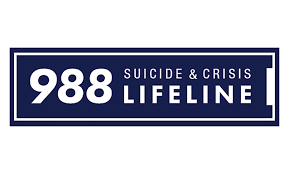The TOP five questions to ask
ad
by Dr. David R. Kraus, President

Hello! I'm Dr. David Kraus, a clinical psychologist who specialized in treating children and families coping with multi-generational histories of trauma. About thirty years ago, I was serving as an Assistant Professor of Child Psychiatry at the University of Massachusetts Medical School when I started the research behind the system you are using today. It cannot guarantee that you will achieve exceptional results, but the system we have created at MatchedTherapists.com is the best-known process to greatly improve your chances of achieving success: finding that exceptional therapist who can help you reach your goals. Every therapist, like myself, has strengths and weaknesses. We match your needs with a short list of therapists who are exceptional (based on data and science, not personal beliefs) at helping others with those same needs.
Now that you have followed Step 1 and identified your needs (let's say they are anxiety and stress at work); and Step 2 where you found a list of therapists who are exceptional at working with both of those issues, it's time to figure out which of those finalists is perfect for you!
Many articles will suggest that you ask a prospective therapist questions about schooling, training, and experience. You can do that, but I'm not sure they will give you the answers you need to make a decision. For example, without a lot of homework, how would anyone know that studying under Professor David Barlow at Boston University is great training for the treatment of anxiety?
Remember, you are not looking for the most educated or most trained therapist who has availability at 12 pm on Fridays. You are looking for the best therapist for YOU - a trained professional who is compatible with you and can help you to feel better in your own skin.
Below are sample questions to ask a prospective therapist in order to evaluate if someone might be the right fit for what you need right now. You might ask these questions on the phone before the first appointment or discuss them in a first on-line or face-to-face appointment.
- "I have issues with ____. I see that you might specialize in that. Can you describe what treatment with you might look like?"
Meeting your expectations is important. Listen to their answers and see if it makes sense to you. Most of all, imagine if you can see yourself discussing personal parts of your life with a therapist like this. Trust your instincts.
- "How do you typically start each session and decide the direction each session should take?"
Expect to engage in a dialogue about this and express your desires. Some people like a more directive, take-charge approach where the therapist decides what is important. Others like to walk into a session knowing they can talk about what is on their mind that day or at that moment. You need to make sure the therapist's way of starting each session fits with your expectations. If you don't know what you would like, say that you're not sure what would work best for you, and see how they respond.
- If you are worried about how your therapist will handle a sensitive issue, put it out there and ask, while you are still relatively anonymous.
For example, let's say you are wondering about your [gender identity] or any other issue that you may not normally talk about with your friends or family. Have a well-scripted question that can help you decide whether you can see yourself talking about this sensitive topic with this therapist. For example, "When you have had a client who is wondering about their [gender identity] what do you do?"
- "When you end therapy with someone and review the course of treatment, are there some consistent things for which your clients are most thankful?"
This question will help you picture going through treatment and coming out the other side with a positive outcome with this therapist.
- "What are some of the things that you do each year to improve your understanding of the issues that your clients are facing?"
Research shows that the "best" therapists are ones who are trying to learn and grow in their practice - the ones who know that they don't have all the answers and keep challenging themselves to improve their skills so they can help others. In response to this question, a therapist might say that they are taking continuing education courses. Virtually all licensed therapists are required to do this, so that's not a great answer. "What's a course that you took recently and why did you pick it? What did you learn from it?" Now those are great questions! They test a therapist's ability to tell you something new that they learned, probably in a context with lots of scientific terms, and if they can distill it, on the fly, into words that make sense to you, you have found a gem. Why? Because that is precisely what often happens in therapy - helping you to understand new things about yourself, others, and life in general in ways that make sense to you.
After you've talked to a prospective therapist, listen to your gut. Imagine yourself talking to this person for a few weeks or months about issues and concerns that you may rarely talk about with others. If you don't see it and feel it, keep looking and revisit these questions after you have interviewed the other therapists on your list.
David R. Kraus, PhD is a licensed psychologist who has spent the past thirty years measuring the quality of behavioral healthcare and finding the unique skills and strengths in most every clinician. He holds several US Patents including an innovative method of using clinician performance data to scientifically match prospective clients with a short list of therapists who have a proven track record of helping similar patients. This method has been proven in the first federal, randomized clinical trial of a referral process in any field of healthcare.

